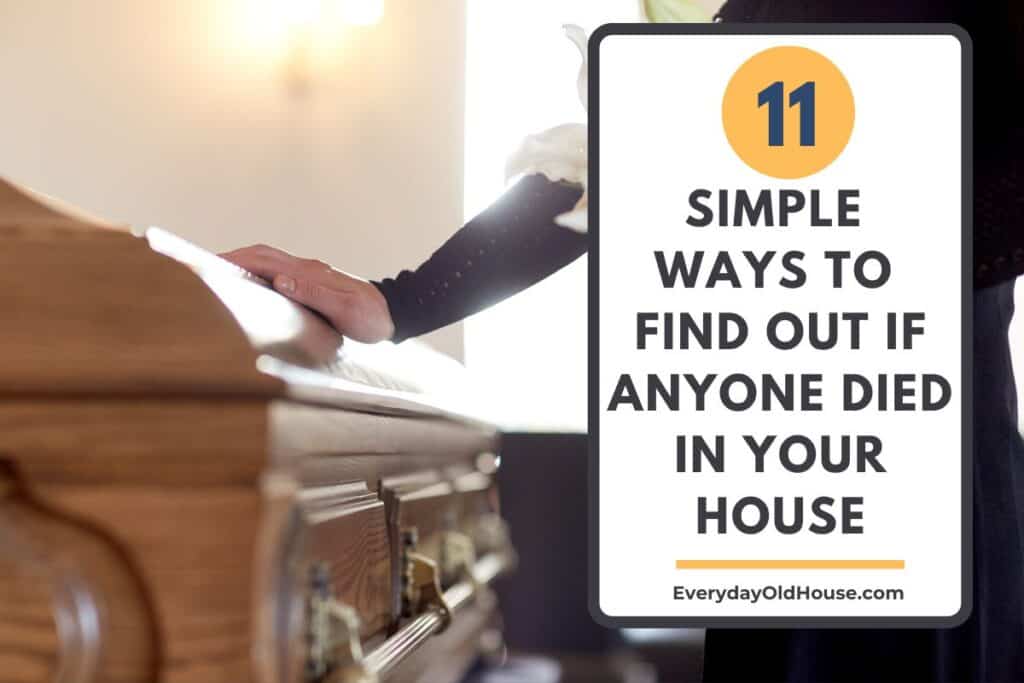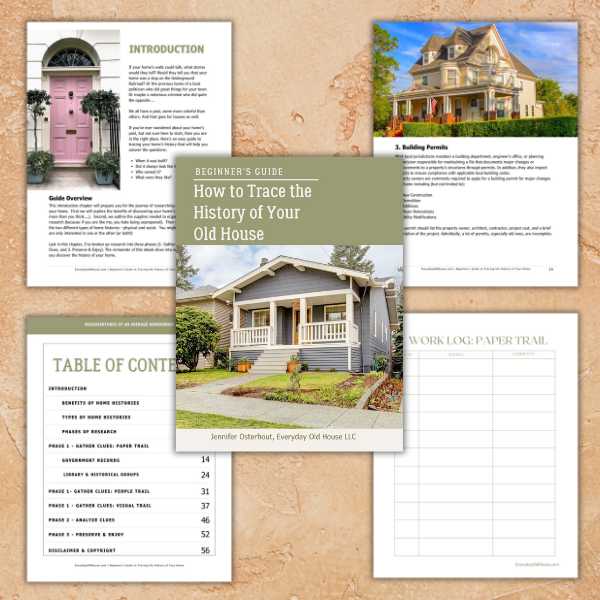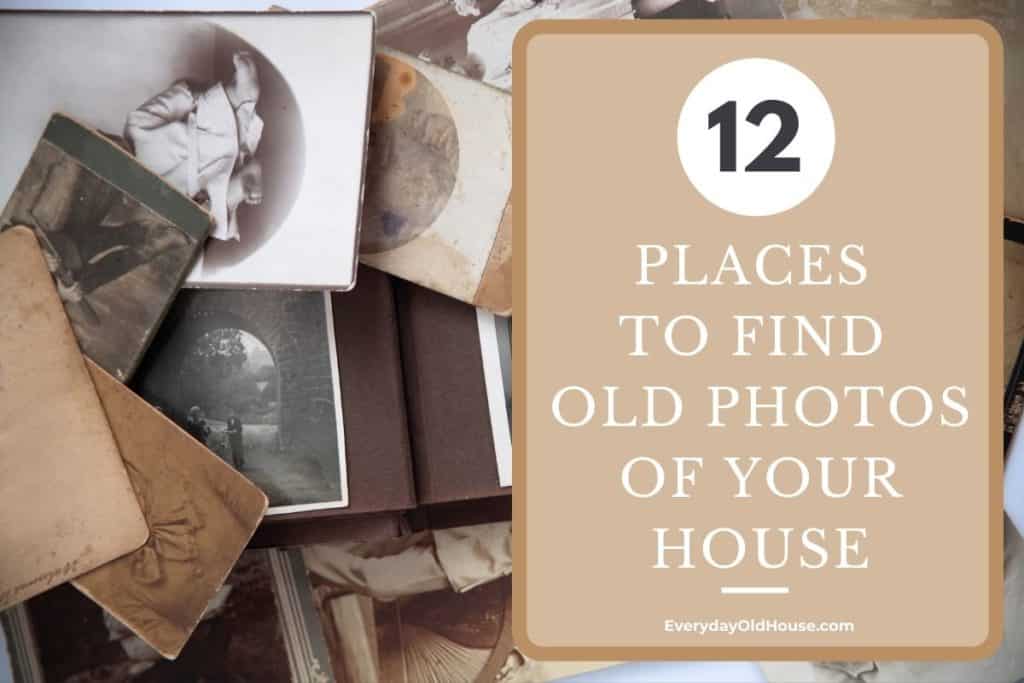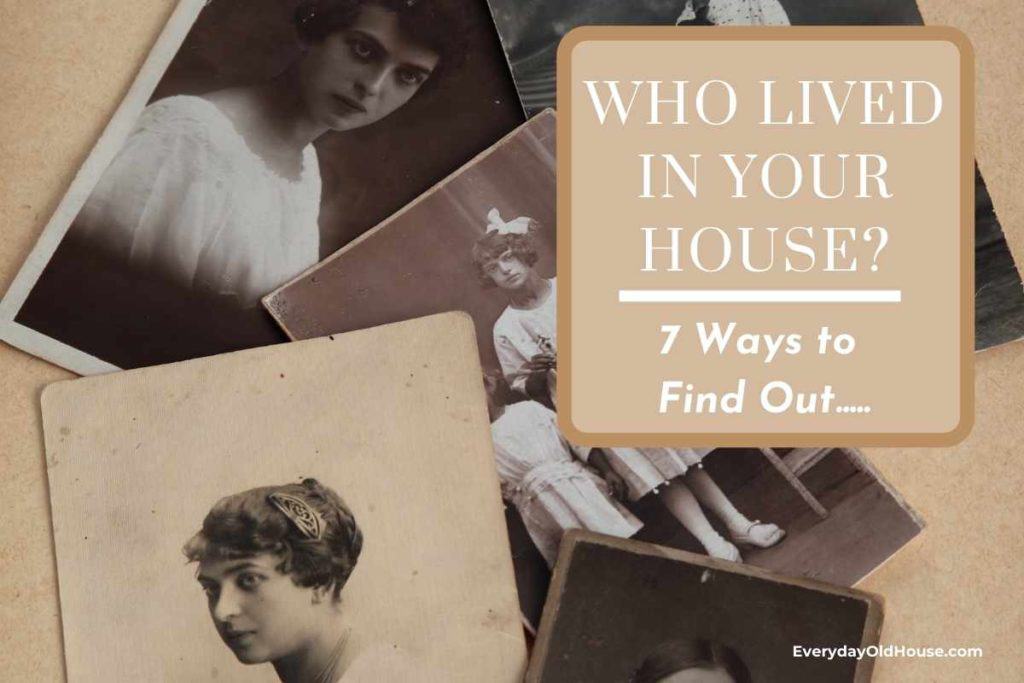Last Updated on January 19, 2025
Have you ever wondered about the history of an older home? Perhaps you’re the homeowner and curious about its previous owners or whether any significant events, such as a violent death, occurred within its walls. Or are looking to buy an old house and want to ensure there are no reported meth lab operations or paranormal activity rumors that might impact property value.
Whatever your motivation, below are 11 ways to investigate whether someone passed away in your house, using tools ranging from public records to newspaper archives.

This post contains affiliate links, including but not limited to, Amazon Associates. As such, I earn from qualifying purchases. Full disclosure located here.
11 Ways to Determine if Anyone Previously Died in Your House
Obviously, the older the house, the higher the chance that someone has died there. In earlier times especially before the construction of nursing homes and large hospitals, it was common for deaths (as well as births) to occur at home.
Bottom line – if you own an older home, someone probably died there.
But don’t panic. Maybe those deaths were elderly ones slipping away peacefully after a full, happy life, surrounding by their loved ones. Isn’t that the way you might want to go?
Here’s 11 easy ways to determine who has died in your old house.
1. Check Local Death Records
Local death records are a great starting point for uncovering a home’s history. These municipal records, often held by city or county offices, can provide information about deaths that occurred at a specific address.
When searching, include the street name and house number. Be prepared to explain your purpose of researching to clerks, as some jurisdictions may require proof of ownership or residency to access detailed records.
2. Search Newspaper Archives
Newspaper archives can be a treasure trove of information about a property’s past. Violent deaths, fires, or other incidents often make the local newspapers. Visit your local library to access public record archives such as police records and death notices. Look up your home’s address along with terms like “death” or “incident.”
For example, if your home was the scene of a tragic accident of meth activity, there is a good chance that it will be in the newspaper. These details can add depth to your understanding of the property’s history.
3. Review Real Estate Records
Property records can reveal a lot about previous owners and significant events. These records often include transactions, foreclosures, and even material facts like deaths disclosed in a seller disclosure form to potential buyers.
Real estate disclosure laws vary from state to state. Unfortunately, most states don’t require sellers to disclose a death in a home, no matter how it occurred. In other states, sellers must disclose a violent death as a material fact but not natural causes. And some states – such as South Dakota, California and Alaska – have strict and very inclusive death disclosure laws for house sellers.
Not a fan of diving into public records? Dial up a well-known real estate agent who has been doing business for many years in your area. If they are as good as people say, this real estate agent should know about any notable crimes or deaths in your older home.

4. Use DiedinHouse.com
DiedinHouse.com is a unique online tool that allows you to search for deaths associated with a specific address. This service checks police records, news reports, and other sources to provide a comprehensive history. While it’s not free, a diedinhouse report is a quick and convenient way to find out if someone died in your home.
In full disclosure, I haven’t run a report on my house. I’m too nervous! Although my house is over 100 years old, there is a good chance someone has died in my home. But I’m a scaredycat and don’t want to know! 😂
5. Talk to Neighbors
Long-term neighbors often have valuable insights into a home’s history. Casual conversations can reveal details about previous owners, unusual events, or even local rumors of paranormal activity. Be tactful when asking questions, focusing on your interest in the home’s history rather than prying into sensitive topics.
6. Explore Genealogy Websites
Genealogy websites like Ancestry.com or FamilySearch.org can help trace the history of a home’s previous owners. By searching census records, you might uncover who lived in your house and whether any deaths occurred there. These platforms are particularly useful for older homes with long histories.
If genealogy isn’t your thing, you can always hire a qualified house historian who knows exactly where to dive deep into various historical records and tease out tidbits to find out if anybody died in your home.
7. Investigate Census Records
Census records can provide a snapshot of who lived in your home at different points in time. These records, available at local libraries or online, often include information about household members, occupations, and ages. While census records won’t explicitly state if someone died in the house, they can help piece together its story.
8. Search Online Forums and Social Media
Online forums and social media groups focused on local history or real estate can be excellent resources. Join groups dedicated to your area and ask if anyone knows about your home’s history. Reddit and Facebook groups are particularly active and may connect you with knowledgeable locals.
9. Review Building Permits
Building permits can offer indirect clues about a home’s past. Major renovations or structural changes might indicate significant events, such as damage from a fire or an effort to erase traces of a meth lab. Visit your city’s planning office or check online databases to access these permits.
10. Contact a Local Historian or Historical Society
Local historians and historical societies are invaluable resources for learning about older homes. They often have access to archives, photographs, and personal accounts that aren’t available elsewhere. When contacting them, provide your address and any known details to help narrow their search.
11. Use a Search Engine
One of the quickest and easiest way to investigate whether someone died in your house is by turning to a search engine like Google. While it’s not a guaranteed method, it’s a great starting point, especially if the death was tied to a newsworthy event.
Simply type your home’s address into the search bar, followed by keywords such as “death,” “crime,” “fire,” or “obituary.” While not every death or crime will be reported online—especially natural deaths or private family matters—this method is admittedly fast and free.
Wrap Up
Uncovering whether someone died in your house can be an intriguing journey into your home’s history. Whether you’re motivated by curiosity, real estate concerns, or an interest in local history, these 11 methods can provide valuable insights. Don’t forget to explore tools like DiedinHouse.com and resources like my Beginner’s Guide to Tracing the History of Old Houses for even more guidance.
BEGINNER’S GUIDE TO HOME HISTORY RESEARCH
Interested in researching the history of your old house but unsure where to start? Grab my newly-release:
Beginner’s Guide: How to Trace the History of Your Old House
This 60-page guide takes you step-by-step through 25+ online and in-person resources to create a picture of your home’s history.

Related Posts
Want to be the first to know about new posts? Be sure to follow me on Pinterest, Facebook, Instagram or Twitter of even Etsy! Or better yet… Subscribe below!
My monthly (admittedly sometimes more, sometimes less….) emails are like receiving a unexpected letter from an old friend WITHOUT needing to put on your slippers and walk out to your mailbox…. See? I got ya, my friend!)
[Note: My posts are proudly connected to these amazing link parties full of DIY ideas and inspiration!]


